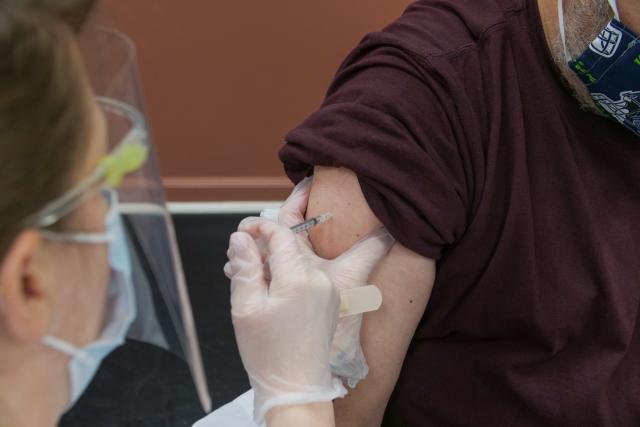
By Violet Li
The Pashto-speaking community in Casey has been engaged with a tailored Covid-19 health initiative to boost immunity.
City of Casey has the largest Pashto-speaking community – one of two official languages of Afghanistan- with around 1600 residents.
Local Pashto speakers collaborated on the new initiative, which has been created in-language and designed to resonate with the specific identified concerns and interests of the community, to keep Covid-19 at bay.
The ‘strengthening immunity in community’ initiative was sponsored by the Department of Health and Aged Care, created in partnership with translation and multicultural communication agency LEXIGO.
The new initiative is aimed to encourage Pashto communities to uptake a Covid-19 booster every six months, along with other measures to bolster individual immunity and encourage others to do the same.
Dr Jameel Ashraf is a healthcare professional within the Pashto community.
He said the language barriers had remained one of the biggest obstacles in the uptake of the Covid-19 booster vaccines to date, with many people from non-English speaking backgrounds relaying the information they receive from friends and family rather than from health authorities.
“They are unable to get reliable information in their own language, [therefore] they remain unsatisfied and hesitant to take [medical] advice,” he said.
Dr Ashraf said slow uptake would enable the disease to rebound quickly, likely resulting in more hospitalisations and ICU admissions, an increase in health-related costs, and longer quarantine periods.
“There are people in our community who can’t be vaccinated for medical reasons and are likely to get more seriously infected.
“Slow vaccine uptake means we are not only putting ourselves at higher risk of infection but also those in our community who are the most vulnerable.”
Research from local focus groups show that the government is the most trustworthy source of COVID-related information among the local Pashto community, with doctors and pharmacists also being relied upon.
“The Pashto community has made it clear that they are likely to comply with advice from government health authorities and departments about COVID-19,” said Mark Saba, chief executive officer at LEXIGO.
“Proactive suggestions to improve vaccination rates in the community that were raised by Pashto speakers included greater accessibility, such as the reintroduction of pop-up vaccination centres.”
The initiative is part of a series of tailored, in-language health promotion material co-created by communities for communities across Australia, encouraging individuals to keep up to date with COVID-19 booster vaccinations and other health safety measures.
Materials have been developed in languages including Arabic, Albanian, Hmong, Somali and others, in collaboration with these language-group communities around Australia.
For those who need help to recover from COVID-19, the National Coronavirus Helpline is available 24 hours a day, seven days a week on 1800 020 080. Interpretation services are available.






